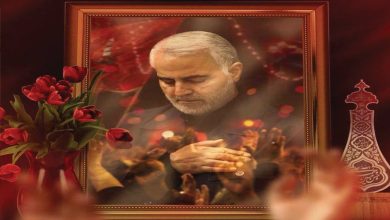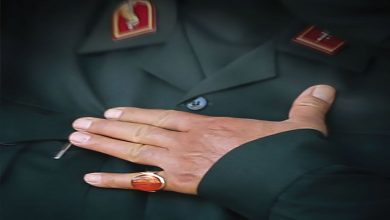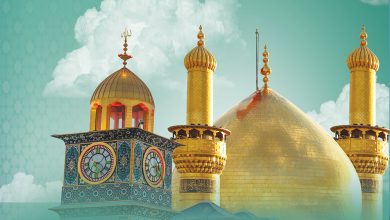Section Five: Friendships, Enmities, Betrayals – Who Stood by Him and Who Sold Out?

 Political Section
Political Section
From Friendship with Abu Mahdi al-Muhandis to Confronting Political Opportunists
Figures Who Stood Behind Haj Qasem and Those Who Pretended to Follow Him
A Review of Subtle and Severe Betrayals Leading to His Martyrdom
Stories from Home, Family, and Inner Circles
From the sincere and meaningful friendship of Lieutenant General Martyr Haj Qasem Soleimani to the tireless collaboration with the honorable Martyr Haj Abu Mahdi al-Muhandis, a story unfolded that is not only part of contemporary resistance history but also a model of loyalty and brotherhood in the path of God. Haj Qasem, the proud commander of the Quds Force of the Islamic Revolutionary Guard Corps, was a man whose relationships with others were built on sincerity, honesty, and commitment to divine ideals and pure Islamic values. He never engaged in superficial or opportunistic relationships; instead, his bonds were grounded in shared faith and a common goal of defending oppressed nations and safeguarding the axis of resistance.
One of the deepest and most enduring of these bonds was his spiritual and jihadist brotherhood with Martyr Haj Abu Mahdi al-Muhandis, the Deputy Commander of Iraq’s Popular Mobilization Forces (PMF). These two great fighters, who had spent their lives on various fronts against occupation, terrorism, and foreign influence, were more than comrades-in-arms—they were close friends and loyal companions. They stood shoulder to shoulder in the toughest battles, from the liberation of Jurf al-Sakhar and Baiji to breaking the siege of Amariyah and finally in the major operations to liberate Mosul. Their companionship extended beyond the battlefield; in secret planning meetings, visits to the families of martyrs, and even brief moments of rest on the frontlines, the spirit of brotherhood, faith, and sincerity was evident.
Haj Abu Mahdi al-Muhandis, born Jamal Jaafar al-Ibrahim, like Haj Qasem, had been at the forefront of resisting Saddam Hussein, the U.S. occupation, and later the Takfiri terrorist groups, long before the emergence of ISIS. Both had a profound understanding of the strategic importance of Iran-Iraq ties for maintaining regional independence and security, viewing this alliance not merely as a political necessity but as a religious and historical duty.
This friendship and brotherhood, nourished by blood and jihad, reached its tragic peak on the dawn of January 3, 2020, when U.S. drones carried out a terrorist act at Baghdad Airport, killing these two commanders of the resistance front. Their simultaneous martyrdom, like a lasting seal on the book of their brotherhood, sent a clear message to the world: the covenant of resistance is one that even death cannot break.
Alongside the sincere and devoted friendships that Haj Qasem maintained with the true allies of the resistance, he repeatedly encountered dual-faced individuals and political opportunists. Haj Qasem, who spent his life far from the polluted games of power and self-interest, viewed politics as the responsibility of a devoted fighter, not as the domain of a transactional politician. With deep insight and exceptional wisdom, he quickly discerned the nature of such individuals and immediately stood against their exploitation of his position and influence.
For Haj Qasem, the ideals of resistance and the pure blood of the martyrs were sacred red lines, never to be turned into tools for personal ambition or partisan interests. Some regional politicians, who outwardly claimed to support the resistance but secretly colluded with enemies, quickly faced his decisive reaction. He warned bluntly: “Any step that takes you away from the path of resistance is a clear betrayal of the martyrs’ blood.”
This firmness and honesty meant that many opportunists did not even dare approach him. Those who sought to exploit Haj Qasem’s name and status were either removed from his inner circle before achieving their goals or exposed directly by his candid warnings. He guarded the resistance not only on the battlefield against visible enemies but also in the more sensitive and hidden arena of combating infiltration and deviation, acting as a vigilant guardian of the sacred cause.







